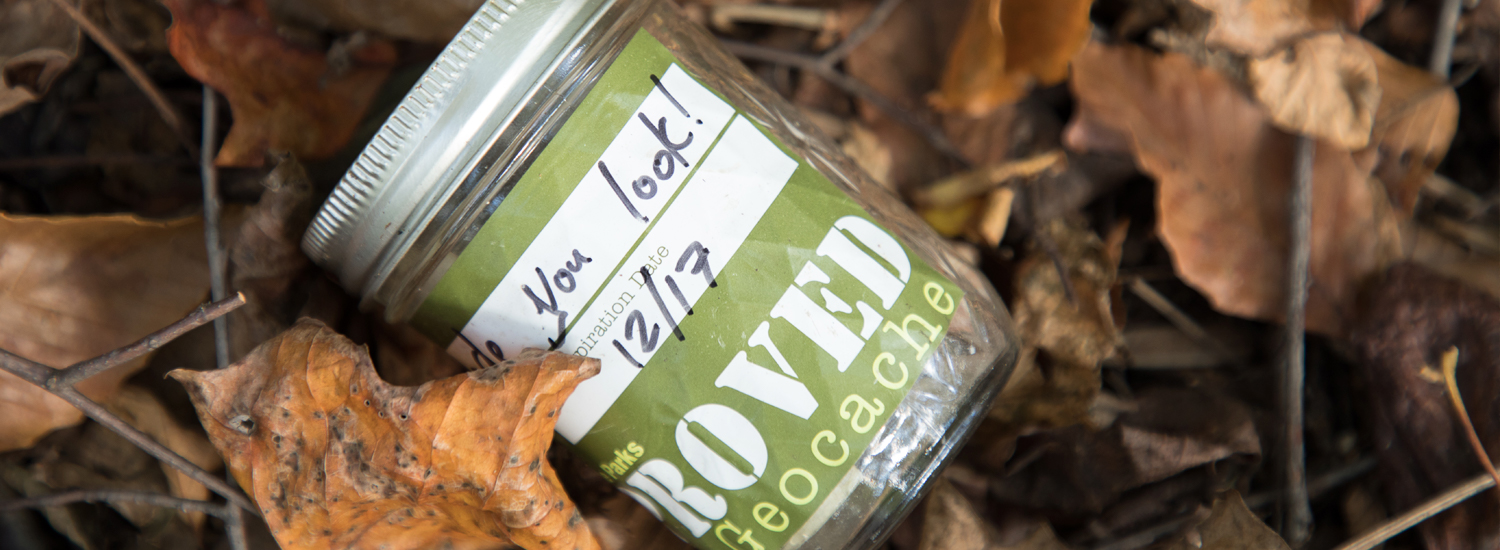

Geocaching at Delaware State Parks
If you're looking for an exciting new way to both enjoy the outdoors and support Delaware's beautiful state parks, try your hand at geocaching or letterboxing! As you hunt for treasure across the state, you'll learn more about our parks as well as develop your orienteering or GPS skills. And if you take a bag to pick up any trash you find along the way, you'll also be doing important volunteer work to help keep the parks clean and beautiful.
To be sure that no park resources are disturbed, anyone wishing to place a cache in a state park must complete an application and be issued a permit by the park.
Use the navigation buttons at the left to download a copy of the application, to read the policy governing geocaching in Delaware State Parks, or to learn more about finding or placing a cache.
We hope that you enjoy exploring our parks at the same time that you enjoy this "treasure-hunting" activity.
What is Geocaching?
Geocaching and its cousin, letterboxing combine outdoor activity with technology and adventure gaming.
A geocacher places a waterproof container in a public place, calculates its coordinates with a handheld GPS unit, and posts the cache location on the Internet at geocaching.com. Other geocachers download the coordinates on their GPS units and try to find the cache.
The caches usually contain items to trade, a logbook and sometimes a camera so the finder can snap a picture of themselves. Most often, the caches aren't hidden in plain sight.
What is Letterboxing?
Letterboxing also involves hiding a waterproof container and logbook. Instead of GPS coordinates, clues for finding the letterbox location are posted on the Internet, passed by word of mouth, or hidden inside another letterbox.
Letterboxes also include a rubber stamp for the finder to use in his or her own logbook. Visit letterboxing.org to locate letterboxes in your area.
Finding a Cache
Geocaching is a fun activity for the whole family. In order to make sure you enjoy finding your first and subsequent caches, here are some simple rules to follow:
Before You Start
Make sure that you have some basic tools. You will need a hand-held GPS unit and a good map of the area.
Choose a Cache to Find
Locate a cache in your area by visiting the geocaching website at www.geocaching.com. For your first find, look for caches that aren't too difficult to find and are placed where the terrain isn't too challenging. Until you have a few hunts under your belt, read the clues and comments from others who have found the cache.
Be Careful
Stick to existing trails as much as possible when looking for the cache. Be careful not to disturb natural areas or damage the environment ("Leave No Trace"). Bring a trash bag so that you can carry out any trash you may find. You may also want to find out what the trails are used for. Best not to be surprised by a horse or bicyclist!
Play it Safe
Bring along a friend, it's easy to get focused on your GPS instead of where you're going. Also, look for holes, downed trees or other things that might block your path. Bring plenty of water and insect repellent and be sure to wear shoes and clothing that are appropriate for the area. Let someone know where you are going and when you'll be back.
After the Find
Enter your name and comments in the logbook. If you're so inclined, take an item and leave an item. Reseal the cache and place it back as you found it. Log your find at www.geocaching.com and e-mail the cache owner. Be sure to report any damaged or abandoned caches.
Placing a Cache
Geocaching is a fun activity for the family and a great way to enjoy Delaware State Parks. To make sure that your experience is successful, here are a few simple rules to follow:
Review the policy for placing a cache in Delaware State Parks.
Download and complete the Delaware State Parks permit application. Do not sign the application until you have spoken with the Park Superintendent.
